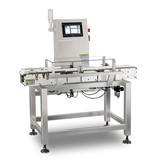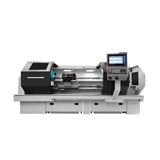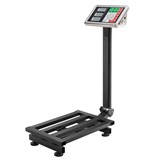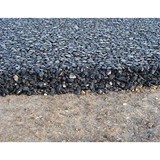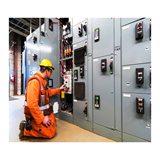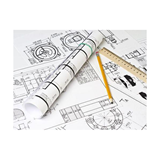Compare asphalt paver prices in Australia. See cost breakdowns, types, and expert tips to choose the best machine for your project.
Key takeaways
- Asphalt paver prices in Australia range from $70,000 to over $600,000+, depending on size, features, and brand reputation.
- Main types include tracked pavers (better for uneven surfaces) and wheeled pavers (ideal for high-mobility jobs on highways).
- Mid-sized asphalt pavers, suitable for council and small contractor use, cost $200,000–$400,000.
- Used machines typically range from $40,000 to $300,000+, depending on hours and condition.
- Operating costs average $100–$150/hour, factoring in fuel, labour, and maintenance.
- Routine maintenance includes daily inspections, screed plate checks, and auger servicing.
- Key compliance standards: Machines must meet AS 5327:2019, Work Health and Safety (WHS) regulations, and emissions standards under National Clean Air Agreement (NCAA).
- Financing options like chattel mortgage and equipment leasing can lower upfront costs and offer tax benefits.
- Common buyer concerns include machine lifespan (usually 10–15 years), availability of parts, training needs, and warranty coverage.
Introduction
Whether you're a civil contractor, local council, or private roadworks firm, investing in an asphalt paver is a major capital outlay. Choosing the right machine can affect not just your upfront costs, but your operational efficiency, crew productivity, and the quality of your road surfaces. This Australian-specific buying guide walks you through the key considerations, pricing insights, operational tips, and legal compliance aspects to help you make a fully informed purchase.
Types of asphalt pavers available in Australia
Understanding the different types of pavers helps match the right machine to your project scale and terrain.
1. Tracked asphalt pavers
- Ideal for: Uneven terrain, steep grades, or heavier applications.
- Advantages:
- Better traction and stability
- Lower ground pressure
- Price range: $150,000–$650,000
2. Wheeled asphalt pavers
- Ideal for: Urban roads, highways, and high-mobility jobs.
- Advantages:
- Faster relocation between sites
- Easier steering in tight spaces
- Price range: $90,000–$350,000
3. Mini pavers and compact pavers
- Ideal for: Footpaths, bike tracks, and small-scale works.
- Advantages:
- Narrow paving width
- Operates in confined spaces
- Price range: $50,000–$150,000
Asphalt paver prices in Australia
Here’s what you can expect to pay for new and used asphalt pavers in the Australian market:
- Compact and mini pavers typically cost between $40,000 and $150,000 new, while used machines in this category range from $25,000 to $80,000 depending on condition and hours.
- Mid-sized pavers, which are popular with councils and smaller contractors, have new prices generally between $100,000 and $400,000, with used machines available from $90,000 to $250,000.
- Large or high-end asphalt pavers can cost from $400,000 to over $650,000+ new, with used machines usually priced between $200,000 and $500,000.
How asphalt pavers operate
A good understanding of the basic working principles helps you select a machine with appropriate features.
Key operational components:
- Hopper: Receives hot asphalt mix from the tipper truck.
- Conveyor: Transfers mix from the hopper to the augers.
- Augers: Spread the mix evenly before it reaches the screed.
- Screed: Levels and partially compacts the mix to set width and depth.
Optional features to consider:
- Sonic sensors for mat thickness control
- Automatic grade and slope control
- Heated screeds for consistent finishes
- Telematics systems for remote diagnostics
Maintenance and servicing
Regular maintenance ensures machine longevity and consistent mat quality.
Daily checks:
- Engine oil, hydraulic fluid and fuel levels
- Screed plates, augers and conveyors
- Tracks or tyres
Weekly or monthly servicing:
- Replace worn screed plates
- Inspect electronics and sensors
- Clean fuel filters and air intakes
Annual major service:
- Full hydraulic system inspection
- Software updates (if applicable)
- Track or wheel alignment
Typical servicing cost: $3,000–$10,000/year
Downtime prevention tip: Use OEM parts and certified technicians to avoid unexpected failures.
Parts and availability in Australia
Common replacement parts:
- Screed plates and extensions
- Conveyor chains and bearings
- Auger flights
- Rubber tracks or tyres
Availability tip: Choose suppliers with a national warehouse network or local parts hubs to avoid shipping delays—especially in rural and regional areas.
Financing options for asphalt pavers
Investing in a new machine doesn’t have to be a full upfront expense.
Popular financing options:
- Chattel mortgage: Retain ownership, claim depreciation and GST.
- Hire purchase: Own the machine after final payment.
- Finance lease: Lower upfront costs, but residual value applies.
Typical loan terms:
- Interest rates: 6–9% (as of Q2 2025)
- Loan periods: 3–7 years
- Deposit: Often 10–20%
Tip: Seek out lenders specialising in construction or civil equipment to access better terms and faster approvals.
To explore flexible, fast, and competitive financing tailored for equipment like asphalt pavers, check out Easy Asset Finance. Their expert team can help you secure the best terms to preserve your cash flow and grow your business.
Warranty coverage and what to look for
A solid warranty gives you peace of mind and reduces total cost of ownership.
Standard warranties:
- 1 to 2 years full machine warranty
- Up to 5 years on major components (engine, hydraulic pumps)
- Some OEMs offer extended warranties with maintenance plans
Recommended checks:
- Coverage limits (labour, travel, downtime)
- Local service agent availability
- Conditions for voiding warranty (e.g. aftermarket mods)
Compliance and certification in Australia
Essential standards:
- AS 5327:2019: Covers machinery safety for earth-moving and road construction equipment.
- WHS Act and Codes of Practice: Requires safe operation, risk assessments, and operator training.
- National Clean Air Agreement (NCAA): Emission controls for diesel-powered equipment.
Failing to meet compliance can result in fines, halted projects, and insurance issues.
Tips for staying compliant:
- Confirm all supplier documentation before purchase
- Provide ongoing crew training and operator certification (e.g. RIICBS307 – Conduct asphalt paver operations)
- Keep a maintenance logbook and safety inspection records
Frequently asked questions (FAQs)
Q1: How long does an asphalt paver last?
With regular maintenance, expect 10 to 15 years or more. Track-based units in high-wear environments may require more frequent component replacement.
Q2: Is it better to buy new or used?
It depends:
- New: Better reliability, latest tech, longer warranty.
- Used: Lower cost, but ensure full service history and inspection.
Q3: Do I need a licence to operate an asphalt paver?
Yes. Operators typically require competency certification under RIICBS307 and must follow employer WHS policies.
Q4: What affects the resale value of an asphalt paver?
Factors include:
- Service history
- Total hours of use
- Brand and model popularity
- Overall condition
Q5: How wide can asphalt pavers go?
Standard pavers offer screed widths from 1.2 metres up to 6 metres, with extensions for custom jobs.
Final thoughts
Investing in the right asphalt paver isn’t just about upfront cost—it’s about long-term efficiency, safety, and road quality. By understanding your job requirements, compliance obligations, and maintenance expectations, you can confidently compare options and secure the best deal for your business. Use this guide as a starting point, ask the right questions, and lean on expert suppliers who understand the unique demands of Australian roadworks.



